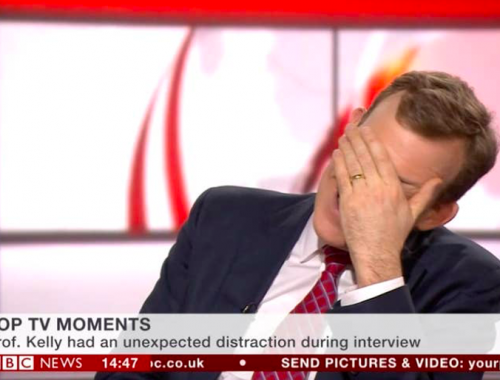Big Dreams in Ripped Jeans
To put it simply, bluntly, and honestly; there is nothing worse, and I mean nothing worse, than an interview. The judging eyes of professionals staring through your quivering soul, as you sit across sweating through your mums borrowed work blazer, trying to convince them that your silver duke of ed is the sole reason you would successfully fly through any high pressure group situation, whilst, politely concealing the fact you’re actually there because your rents went up, and not because you have a burning passion for stacking shelves.
To be entirely transparent, I am yet to attend an interview for a job that I would actually love. Don’t get me wrong, working in retail has kept my flat warm, put food (instant noodles) on my table, and has funded a substantial number of nights out, but do I actually enjoy going to work? Do I actually want to get out of bed to go? Does it truly set my soul on fire? Wise up. Of course not.
However, when the opportunity arose within this module to take part in a simulated interview, and to ACTUALLY apply for a job I would be somewhat interested in; I was quite excited. Having this experience at such a crucial stage in our university careers was invaluable. You could feel the nervous excitement in the room, and it was brilliant to see everyone pouring their heart and enthusiasm into their interviews, obvious we where each eager to secure our fake dream jobs.
“I would rather die of passion than boredom”
Vincent Van Gogh
I remember stumbling across this quote on Pinterest a few years ago, saving it to my camera roll because I liked it that much. I have always stated that I would rather make less money doing what I love, than be stuck in a well paid job that bores me to absolute tears. So I made sure to keep this quote in mind when searching for the ‘dream job’. When I came across a Manchester based Theatre company searching for a new ‘Head of Creative Development’, I thought, yeah, this is the one. Now in hindsight, this was quite an ambitious job to select for someone who hasn’t even graduated university, but then again I do enjoy a challenge.

For this blog post, I will be using and referring to ‘Gibbs’ Reflective Learning Cycle’, when reflecting upon my experience.
https://www.sheffield.ac.uk/ssid/301/study-skills/university-study/reflective-practice
As soon as I walked into the room, I was immediately launched into a state of panic. It was a professional sea of suits, ties, pencil skirts, blazers, slicked hair, and cufflinks. I stood, rather embarrassed and severely underdressed, in a pair of baggy mom jeans and an old jumper. Mentally, this knocked my confidence, and I began to get in my head. I feared my casual dress code would overlook my entire interview, and give off a bad first impression. However, I feel my lack of formal attire lit a fire under my, you know, and forced me to fully commit, and give it my absolute all (in a hopes they wouldn’t notice my ripped jeans and mucky shoes).
As I left the room, and entered again as the candidate, I started to let my nerves get the better of me. I was feeling overwhelmed, and a bit apprehensive. As a self confessed control freak, the mere thought of not being able to have a list of pre prepared answers to a set list of known questions did stress me out. But, I do love improv, and had to remind myself that success is being confident in knowing you have tried your absolute best.
Within a professional interview, its not necessarily about ‘proving you are worth talking to’, but is instead about ‘standing out from a short list of capable people’.(1) I needed to make sure that whatever question was thrown my way, big or small, I had to prove I was ‘capable’ for the job.
Under the description for the job, it stated that applicants would need to be ‘dedicated to working with young people and early career creative’, therefore many of the starting questions asked to me revolved around my experience working with children. I felt pretty confident when answering these opening questions, as I have always loved working with younger people, so I was able to answer without any hesitation. I openly discussed my involvement with Bruisers 2021 summer scheme, volunteering with Cinemagic, and my experience teaching primary school children piano. I feel I handled these questions well, drawing upon my experiences, and linking them to how they would benefit the company when being head of their creative development section. I do feel however, my answers would have been stronger if I didn’t get a bad case of, what I like to call, ‘word vomit’. If I had more concise, straight to the point responses, I feel my interview would have been a lot stronger. For future interviews, I feel this is something I could certainly work on by just taking a deep breath, and calming myself down a lot more before hand, as I tend to ramble when I’m anxious.
As my interview continued, I began to relax a lot more into the situation, and was able to answer each question with precision, while still allowing my answers to be personal an authentic. The feedback I received from my peers was ultimately very positive, despite entering the interview looking like a backing dancer for a 90s music video. Overall, I think I handled the simulated interview situation really well, and was definitely able to swim instead of sink in the end.
BIBLIOGRAPHY
(1) Lees, J. (2012) Job interviews : top answers to tough questions. Third edition. McGraw-Hill. P-1.
You May Also Like

Simulated Interviews: A Pointless Exercise?
14 February 2022
The interview may have been simulated, but the anxiety was real!
21 February 2022
